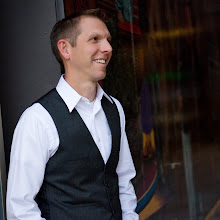We are generally distrustful of leaders in America - probably with some good reason. Malicious, ambitious and self-centered people have risen to places of influence throughout history. No one is immune from leadership scandals. They exist in every organization. They exist because leaders are human. So the mantra “Question Authority” has risen to the top of the cultural dialogue. We have come to the crippling conclusion that no person should impose any authority on another. Authority is as morally wrong as it gets in our self-determining culture.
But it strikes me that this leaves us in a very paranoid and unproductive state of being. There is an imminent conspiracy in every direction. Our lives are racing by while we decide where to go and who to trust. We stand at the bus stop and wait for the one bus that has a trustworthy driver and our life is spent waiting and never traveling.
Taken to the extreme (which is the directionality of all ideals) every person is left to decide the proper time and manner to drive through the intersection, pay for food and punch the clock. Obviously, human relationships are dependent on some level of order. Anarchy leads to mass suffering and is logically inconsistent with real freedom (see “The Man Who Was Thursday” by Chesterton). Authority is a critical part of a working society but when is “The Man” keeping us down and when is it right to reject authority?
Moses is an interesting study in leadership and authority. Reading Exodus 1 and 2 it would seem that, prior to the burning bush, Moses knew very little (if anything) of the God of the Hebrews and was a man of questionable character. Now the author of Hebrews (see Hebrews 11) exposes some subtle nuances to Moses' pre-burning-bush life. But the following description would have been a probable persepective of the common Israelite, who would eventually be faced with following Moses.
He was a Hebrew separated from his roots. He had been raised in Pharaoh’s household under extreme affluence, which is not exactly “the cradle” of good character. Eventually, his conscience began to surface like many who, while wallowing in the fat of the land, begin to “feel sorry” for the poor, sick and dying that surround them. This spurt of conscience or sympathy led him to action – albeit cowardly action. Acting like someone who understands special privilege, Moses “looked this way and that, and seeing no one, he struck down the Egyptian and hid him in the sand.” (Ex. 2:12)
His leadership résumé doesn’t stop there. Faced with the consequences of his actions, Moses runs away. He marries a Midianite, argues with God and doesn’t have his own son circumcised. It would be an understatement to say that Moses was not the model Hebrew. (Again, Hebrews 11 seems to indicate that Moses made a decision prior to the murder to align himself with the people of God and suffer reproach for Christ, but these admirable qualities, as often the case with leaders, would not have been readily seen by the Israelites.)
If you read Exodus alone (written by Moses), the Moses we see at the burning bush is on the run from the law and not exactly the picture of strength and conviction but God sees a leader.
For the common Hebrew, this is a conspiracy just waiting to be revealed – especially when you consider that the initial results of Moses ‘leadership” where an increase in hardship and labor from Pharaoh. Once again God chooses the one man we would not have chosen. Without an assurance of God’s involvement, Moses was the wrong man – certainly not to be followed.
31 January 2005
Subscribe to:
Post Comments (Atom)









0 comments:
Post a Comment